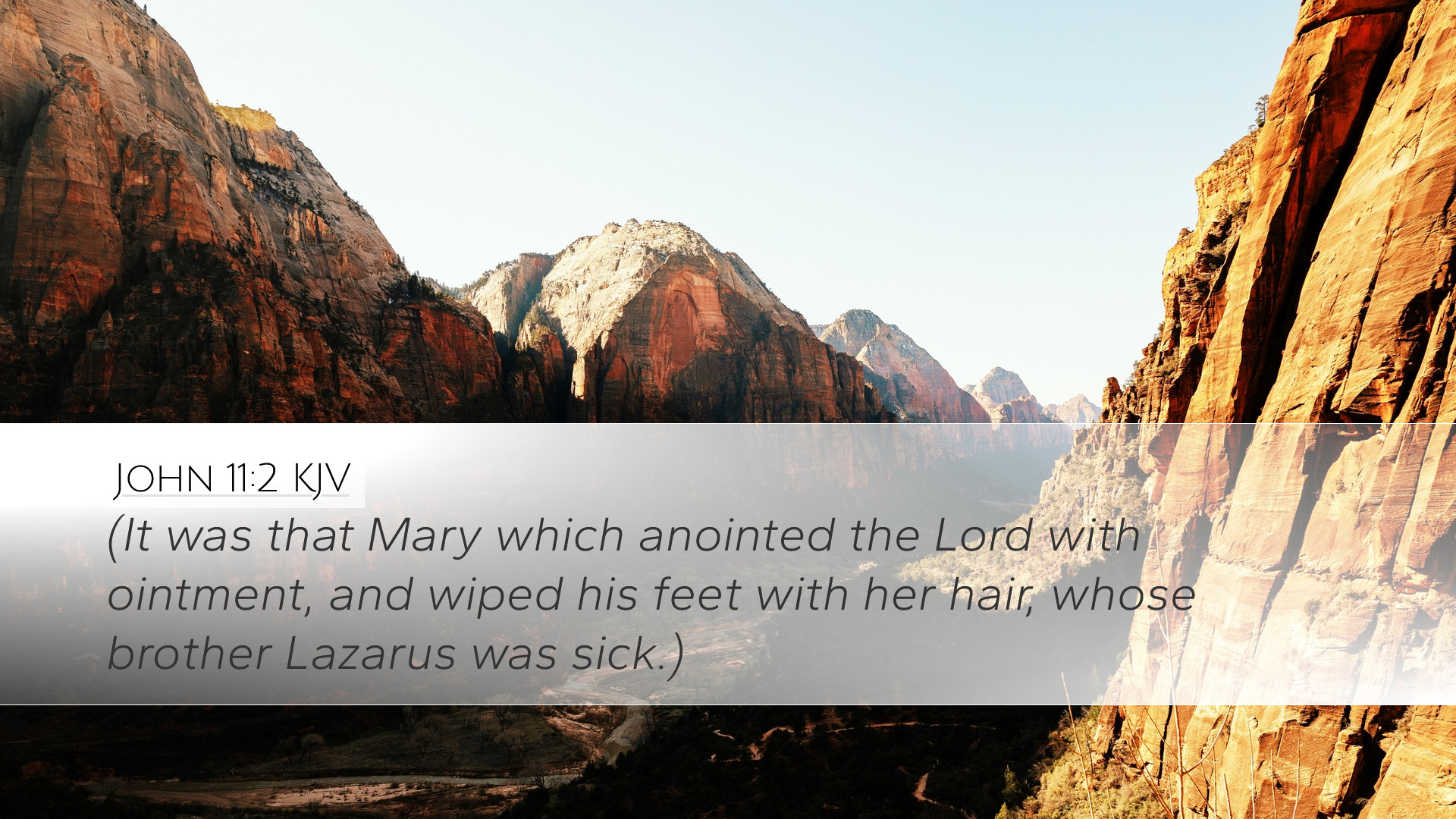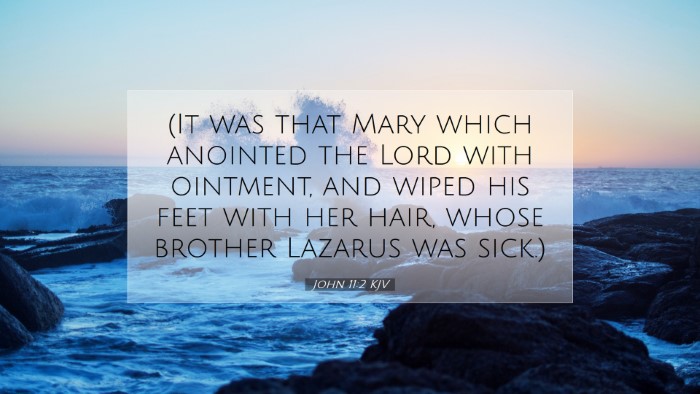Commentary on John 11:2
“It was that Mary who anointed the Lord with fragrant oil and wiped His feet with her hair, whose brother Lazarus was sick.” - John 11:2 (NKJV)
Introduction
In the context of John 11:2, we find a significant narrative that leads to the raising of Lazarus, a pivotal miracle in the Gospel of John. This verse not only identifies Mary, the sister of Lazarus, but also highlights her profound devotion to Jesus. This commentary synthesizes insights from notable public domain commentaries including those of Matthew Henry, Albert Barnes, and Adam Clarke to deepen our understanding of this passage.
Mary's Identity and Significance
Mary of Bethany: The reference to Mary in this verse alludes to Mary of Bethany, a figure well-known in the New Testament for her intimate relationship with Christ. Matthew Henry emphasizes that Scripture often highlights the acts of individuals who possess sincere hearts and deep devotion, serving as models for Christian behavior.
Contrast with Other Marys: Albert Barnes notes the importance of identifying Mary clearly to avoid confusion with other figures named Mary in the New Testament. This distinction underscores not only who she is but also her unique role in the Gospel narrative.
Her Anointing of Jesus: The mention of Mary’s act of anointing Jesus (found in John 12:3) serves as a foreshadowing of the events leading to the crucifixion, where Christ’s body was prepared for burial. Adam Clarke points out that this act is significant, illustrating Mary’s deep love and understanding of Jesus’ impending sacrifice.
The Sickness of Lazarus
Lazarus's Condition: This verse succinctly presents Lazarus as being sick, an introduction to the unfolding drama. Henry suggests that the illness of Lazarus serves a dual purpose: it demonstrates the providential plans of God and highlights the faith of Mary and Martha in the face of distress.
A Lesson on Suffering: Barnes remarks that the suffering of Lazarus is a condition that all believers will endure. Yet, it is through this suffering that God can ultimately reveal His glory, exemplifying the transformative power of faith amid trials.
Theological Implications
Understanding Death and Resurrection: The illness of Lazarus prefigures the themes of death and resurrection that dominate the chapter. Clarke notes that the narrative challenges readers to grapple with the realities of death, the nature of faith, and the assurance of resurrection provided through Christ.
Christ’s Sovereignty: This passage reinforces the sovereignty of Christ over illness and death. Henry asserts that Jesus is not merely a miracle worker but also the author of life, reminding followers that even in sickness, there is hope in His divine purposes.
Application for Believers
Faith in Crisis: The story of Lazarus invites believers to reflect on their responses in times of crisis. Mary and Martha's message to Jesus about Lazarus highlights their trust in His ability to heal. Barnes emphasizes that this is a call for believers to maintain faith, believing that God is aware of their struggles and capable of intervening in profound ways.
Call to Action: The communal aspect of this story invites the Church to come alongside those who are suffering, providing support and encouragement. As Mary exemplifies, anointing and caring for one another in times of need is a reflection of Christ’s love in action.
Conclusion
John 11:2 serves as a poignant reminder of the intersection of faith, suffering, and divine purpose. The figure of Mary—combined with the seriousness of Lazarus' condition—invites believers into a deeper exploration of their own lives of faith. As outlined by the combined insights of Henry, Barnes, and Clarke, this passage is not merely historical narrative; it is a theological touchstone that continues to challenge and inspire the Church today.


